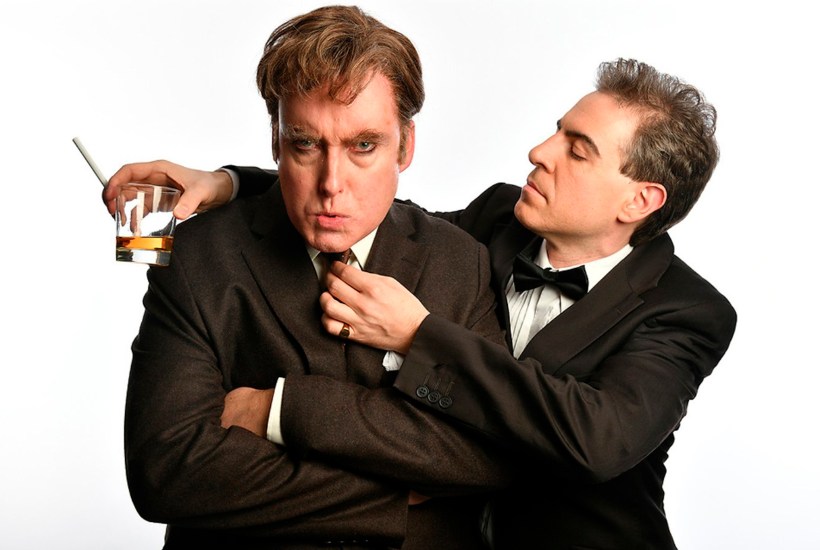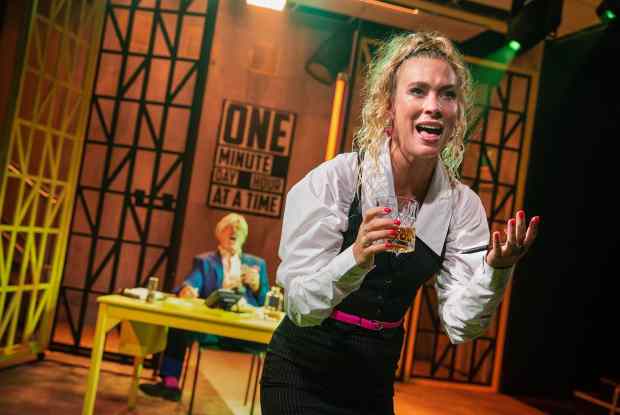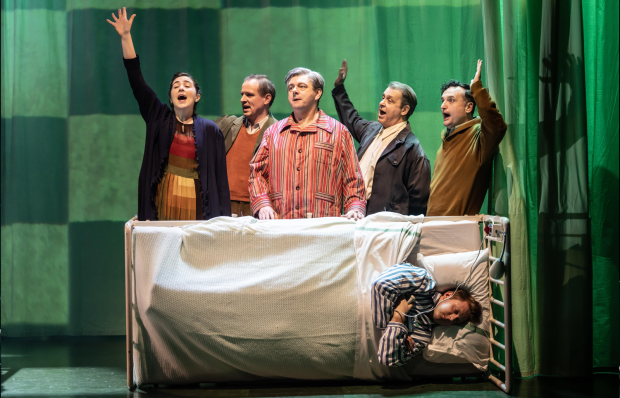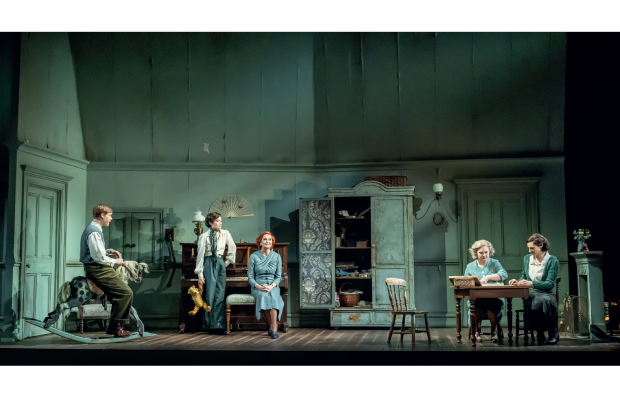It’s touch and go whether the theatre will survive this latest assault. Some venues have pushed back their entire programme by four weeks, which is chaotic but manageable. Theatres mounting a panto are in a trickier position because they can’t trust Gove and Johnson not to extend the curfew into the festive season. November is the month when companies start to book venues for the Brighton Festival in May. What to do? Take the plunge or wait it out for another year? And the big decision about Edinburgh 2021 will have to be faced before the winter is over. The lockdown in spring was a financial and professional calamity but this new onslaught adds a spiritual element — despair. What’s the point of pursuing an art form which the government is ready to sacrifice in order to tackle a bug whose recovery rate is extraordinarily high? At least the plagues that closed the Elizabethan theatres had the courtesy to kill huge numbers. Covid is a pinprick by comparison and yet our rulers are using this tiny aperture to administer deadly poisons. In future, the theatre may evolve into a decorative greenfield pursuit, like lawn bowls or cricket, staged outdoors in the summer months only.
A new venue, the Golden Goose, has opened with a biographical comedy, Howerd’s End by Mark Farrelly. Up go the lights and we see a half-blind man of 80 seated in a wheelchair beside a portrait of Frankie Howerd. This is Dennis Heymer, Howerd’s partner and manager for four decades, and he looks back at his life with the troubled comedian. They met in 1955 at the Dorchester where Heymer worked as a sommelier. ‘Do you bowl from the pavilion end?’ asked Howerd, using the gay code of the time. The show moves deftly between his private and professional lives. He was pathologically thrifty, haunted by doubts about his physique, and deeply ashamed of his sexuality which he believed could be cured by LSD. He dropped acid for years.
His career began rockily. In the late 1940s he was a national figure thanks to his radio performances but within a decade the bookings had dried up. He was rescued by Peter Cook who gave him a break at his satirical club, the Establishment. ‘Nowadays you need a degree to be vulgar,’ teased Howerd. They loved him. It’s clear from this play that he might have produced a great novel had anyone forced him to produce a manuscript. ‘I felt I had barbed wire in my throat,’ he says of his social awkwardness. He blamed himself for his parents’ fractured relationship. ‘When two people have a child they create a loneliness.’ He preferred solitude to emotional commitment. ‘I dread the silence. It knows too much.’ But he spent his life chasing the thrill of stand-up comedy because it fed his narcissism. ‘My ego is the size of Botswana.’ His gags were sometimes great, sometimes corny. He told the Oxford Union: ‘There’s no way I could be described as an intellectual — which is why I feel so much at home here.’ Any decent performer could put that line across. Compare this much feebler quip. ‘You look like you could do with a good laugh, or a good wash.’ Only a great comic could get a response from that. Simon Cartwright plays Howerd as a charming but dishevelled emotional wreck. And he conveys the louche rasping quality of Howerd’s voice, which combined boyish innocence and erotic suggestiveness. The Beeb could turn this script into TV gold.
Richard O’Brien, creator of Rocky Horror, stars in an update of the Baron Munchausen yarns. Paul Birch’s script seems too impulsively ramshackle for its own good. It opens in East Germany in 1989 where the narrator attends a pop concert and gets embroiled in a chase involving the Stasi and Elton John which takes him to Notre Dame in Paris prompting a cameo appearance by the Hunchback. Much of the story features Munchausen escaping from baddies but we never learn what he’s after. He summarises the tale at one point.
‘My mentor, a Swedish biochemist betrayed me in Paris in order to steal my discovery of a universal antibiotic and then, because of my resemblance to a young Brad Pitt, sold me into slavery to Eurasian mobsters who were palming me off as a Robert Redford lookalike to adoring fans in Belarus so that they could launder the profits of their opioid empire.’
That’s hardly worth unscrambling. Occasionally a decent thought emerges. Munchausen dislikes normality and calls it ‘a construct to make us believe in reason’. He notes that some criminals are creative geniuses. ‘For the best ideas, go to organised crime. They are the greatest innovators.’ O’Brien’s diehard fans will lap up the zany exuberance of these tales. After the first three instalments my hunger was sated.
Got something to add? Join the discussion and comment below.
Get 10 issues for just $10
Subscribe to The Spectator Australia today for the next 10 magazine issues, plus full online access, for just $10.
You might disagree with half of it, but you’ll enjoy reading all of it. Try your first month for free, then just $2 a week for the remainder of your first year.














Comments
Don't miss out
Join the conversation with other Spectator Australia readers. Subscribe to leave a comment.
SUBSCRIBEAlready a subscriber? Log in